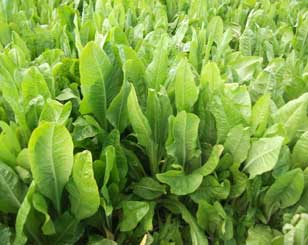PARASITES AND PLANTS - exploring the anti-parasitic activity of a bioactive livestock forage
Infection with gastrointestinal parasites is one of the most severe impediments on sustainable production of meat and milk from livestock. Widespread resistance to the small number of available synthetic drugs has rendered continued prophylactic drug treatment unsustainable.
 An alternative control option may be the use of natural, bioactive forages with anti-parasitic activity.
An alternative control option may be the use of natural, bioactive forages with anti-parasitic activity.
Here, we will exploit recent findings from our group that have identified chicory (Cichorium intybus) as a forage that can be used to control pathogenic and socio-economically important parasitic nematodes in cattle. We will investigate whether chicory has broad-spectrum activity against both nematode and protozoan parasites, identify the active molecules, and define their mode of action.
Overall, we envisage that the project will reveal unique and novel information on bioactive molecules in animal forages. Furthermore, the knowledge gained from this work can be directly translated into sustainable parasite-control options in ruminant agriculture, such as the breeding of plant cultivars with enhanced anti-parasitic activity and/or synthesis of novel veterinary drugs.
This will significantly improve the security and profitability of livestock industries worldwide.
The project runs from 2016 – 2020, and is funded by the Danish Council for Independent Research (Technology and Production Sciences) with 6.2 million DKK.
For MORE project information contact Andrew Williams: arw@sund.ku.dk and Stig Milan Thamsborg: smt@sund.ku.dk
